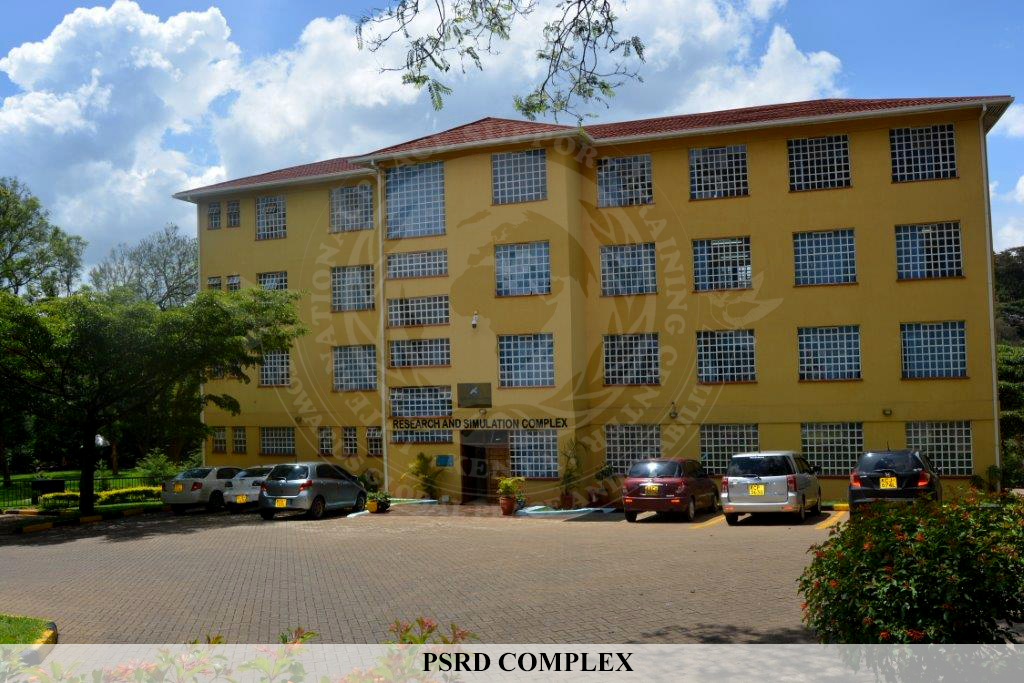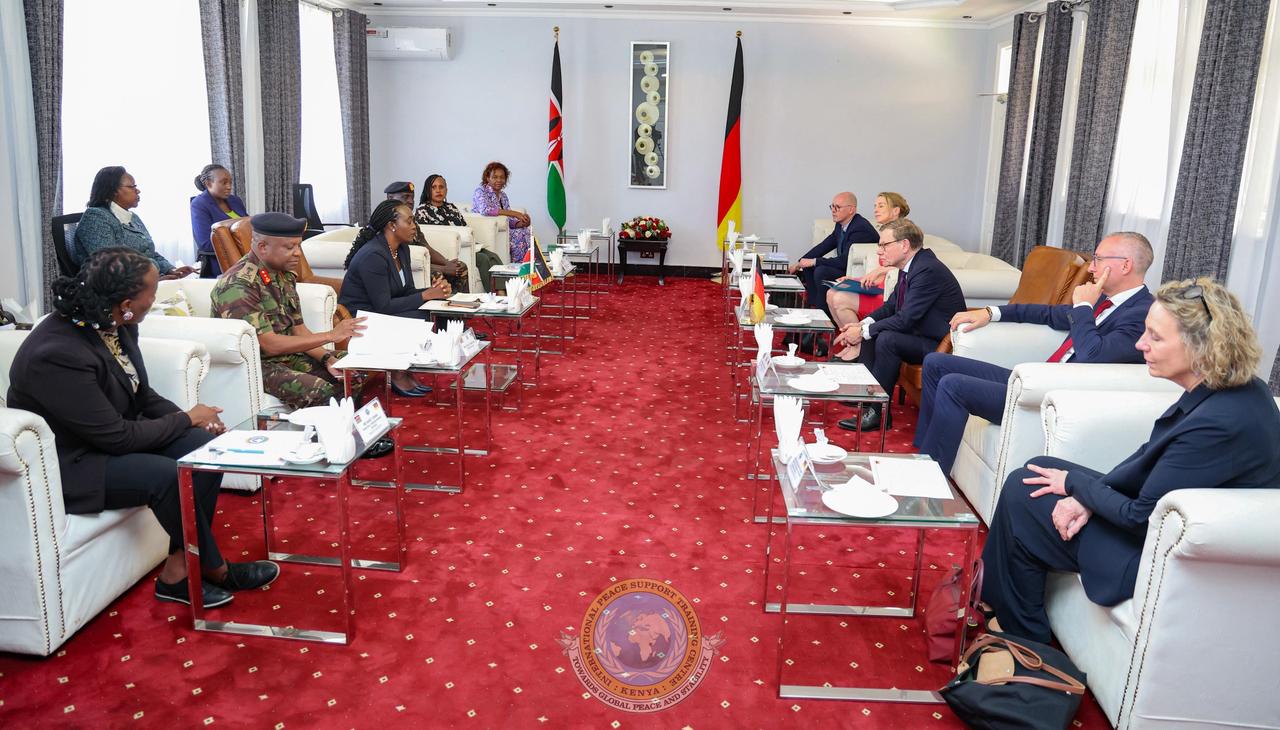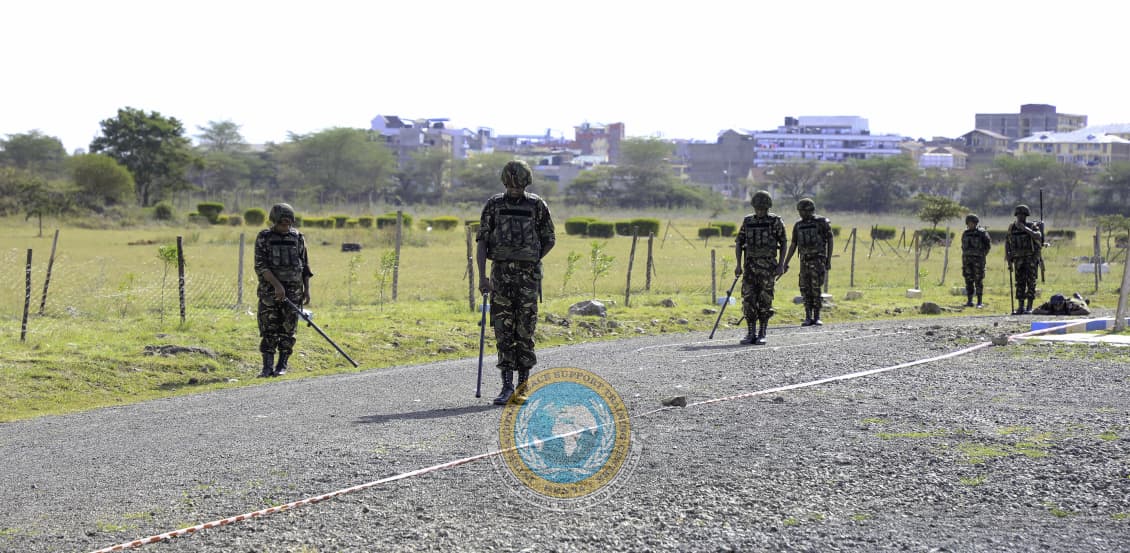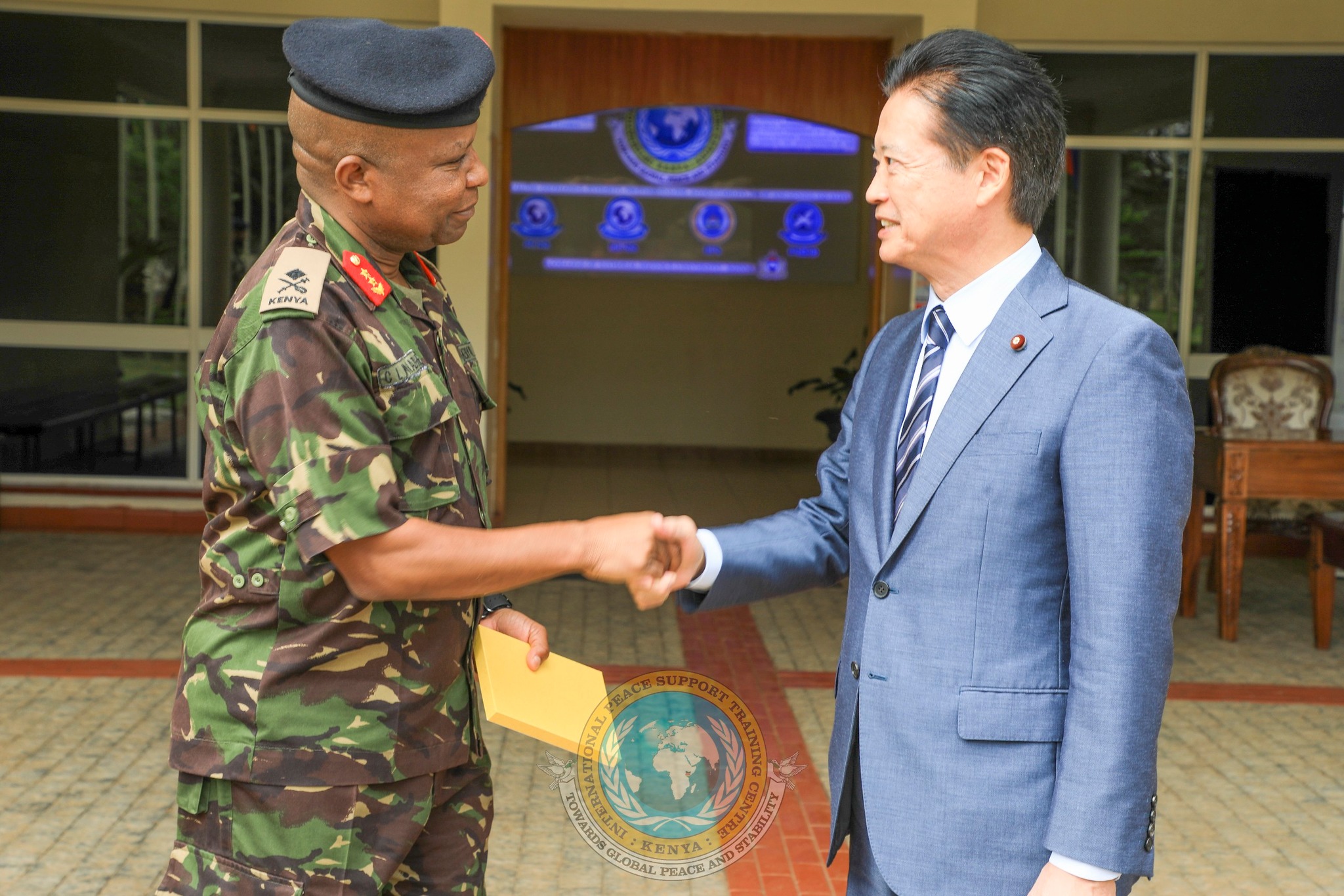
PSRD
The Peace and Security Research Department (PSRD) is one of the three platforms of IPSTC. The core responsibilities of the department are:
- Applied Research across the entire spectrum of conflict
- Curriculum Design and Development
- Simulation and Evaluation
PSRD works in close coordination with Peace and Conflict Studies School (PCSS) & Humanitarian Peace Support School (HPSS).
To produce Cutting Edge Knowledge on Emerging Peace and Security issues in Eastern Africa
Curriculum Design section is responsible for the design, development and review of the IPSTC courses conducted at PCSS & HPSS. Thse courses are prepared within the IPSTC training and education framework which focuses on peace support operations and the African peace and security architecture, specifically addressing the needs of the Eastern African Region.
The key facility premised here is the computer laboratory. The Simulation and Training Evaluation section conducts the following key activities within the research Department:
- Gather Daily Course Evaluations. Course evaluations are the student's primary means of feedback on the quality of courses. Telling what they think and how IPSTC might improve. Course evaluations are used by the instructors to improve courses for future students, to make them more relevant, and to improve the effectiveness as instructors. Curriculum design and training staff are reviewing the results, looking for ways to improve the individual courses but also the program offered by IPSTC. The overall evaluation questions are the same for all courses across the schools, hence feedback results allow comparison between courses at HPSS Embakasi and PCSS Karen.
- Collect After 3 Months Surveys. The purpose is to collect information about the quality and the impact of the courses, advice the designers of future courses and the sponsor and count number of participants deployed to an AU/UN or another mission.
- Provide E-Learning. IPSTC maintains an “E-Learning” link to Peace Operations Training Institute POTI www.peaceopstraining.org from where more than 1,200 IPSTC students enrol in the full curriculum of 29 various online trainings. Students are engaged in active self-study and are expected to benefit from: Self-study courses in accordance with UN standards (for military, police and civilian); Access to the learning platform globally and at any time; Comprehending the theory and politics of conflict, war, mediation and negotiation and Evaluating the potential for conflict in a country or region and analysing the complexity and limitations across cultures and diverse groups.
Applied Research section seeks to provide intellectual input to inform theory and practice through workshop, field and desktop research.
Applied Research products and activities include the following:
- Research workshops. Every year the PSRD begins its calendar by formulating an agenda to inform its activities as one of its key responses to emerging issues in conflict, peace and security.
- Research symposia. These provide a platform for dissemination of the research findings; to peer review the research findings and make recommendations thereof to identify the knowledge gaps in the research findings and to create and strengthen networks for future collaboration with both new and existing partners in Peace and Security.
- Issue Briefs. These are short discussion papers, which are demand led aimed at shedding more light on current peace security issues in the region. The publications are informed by secondary data.
- Occasional Papers. These are demand-led appllied research products aimed at informing the IPSTC training as well as policy on regional peace and security.
- Amani Library. The library provide access to relevant academic and information material for research to all our clients. The library also stocks periodicals of IPSTC research products. It has a collection of audio-visual materials such as VCD cassettes as aids to teaching and pictorial references.




